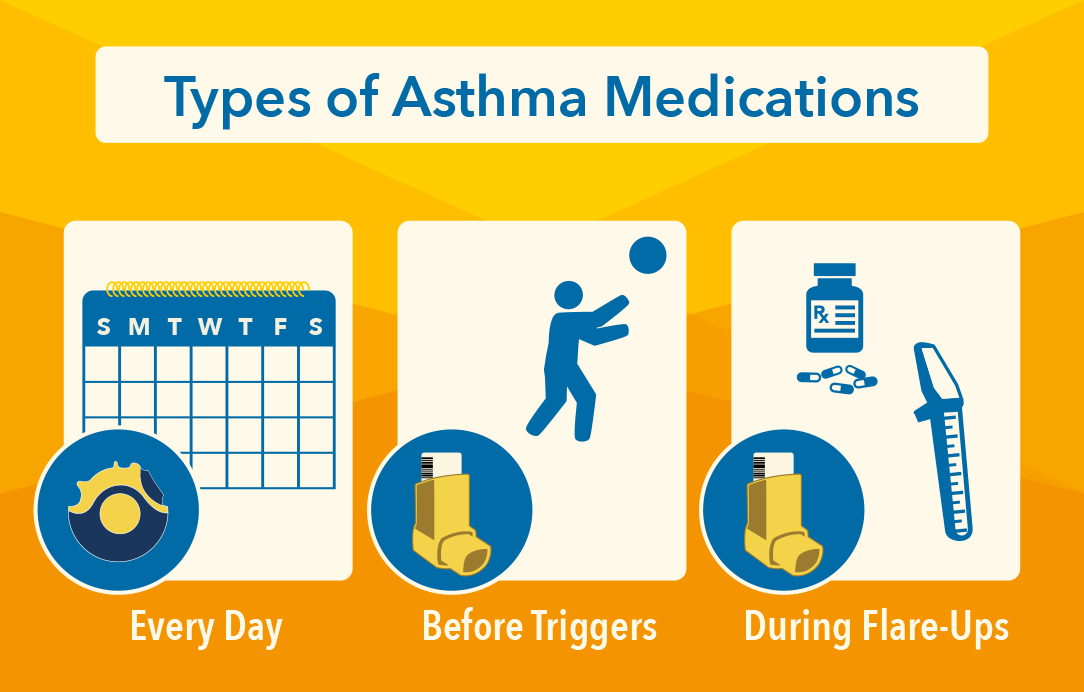Asthma is a life-long disease. The only way you can treat it is to get diagnosed as soon as possible and start the management of your asthma symptoms.
HOW IS ASTHMA DIAGNOSED?
First, your doctor will perform a physical exam to rule out other respiratory disorders like COPD (chronic obstructive pulmonary disease), pneumonia etc.
Then, there are 2 tests to measure how well your lung functions – Spirometry & Peak Flow. A bronchodilator is used to open up your airways before these tests. But if your lung function improves after taking this bronchodilator, it means that you may have asthma.
There are some additional tests used to diagnose asthma. Some of these are – Methacholine challenge, Imaging tests, Allergy testing, Nitric oxide test, Sputum eosinophils, and Provocative testing for exercise and cold-induced asthma.

TREATMENTS FOR ASTHMA
Asthma management is a long-term process. Triggers are responsible for your asthma attacks. It’s important to recognise what is causing your asthma attacks. You can keep a track of your asthma triggers and make sure that you avoid those triggers.
When an asthma attack is going on, it’s necessary to open up your airways as fast as possible. A bronchodilator does just that. For long-term asthma management, your airways need to be normal and not swollen.
Long-term Asthma Medications
- Inhaled corticosteroids like Flovent HFA, Flovent Diskus, Xhance, Pulmicort Flexhaler, Pulmicort Respules, Rhinocort, and more.
- Leukotriene modifiers like Singulair, Accolate, and Zyflo.
- Combination inhalers like Advair HFA, Airduo Digihaler, Symbicort, Dulera, and Breo Ellipta.
- Theophylline
Quick-relief Asthma Medications
- Short-acting beta agonists like ProAir HFA, Ventolin HFA, Xopenex, and Xopenex HFA.
- Anticholinergic agents like Spiriva, Spiriva Respimat, and Atrovent HFA.
- Oral and intravenous corticosteroid like Prednisone Intensol, Rayos, Medrol, Depo-Medrol, and Solu-Medrol.
 Allergy Medications –
Allergy Medications –
- Allergy shots
- Biologics
Bronchial Thermoplasty –
Your doctor heats up your airways with electrodes to smoothen up your tracheal muscles. This prevents them from closing up and in turn prevents an asthma attack.
Asthma Action Plan –
Once you have been diagnosed with asthma, your doctor will come up with a plan to adjust your dosage of medications based on the severity of your asthma.
Home Remedies for Asthma
- Exercise Regularly – Exercising regularly helps improve your stamina. This can help you strengthen your heart and lungs.
- Maintain a Healthy Weight – Overweight people can find it difficult to prevent asthma attacks.
If you or anyone you know is suffering asthma like symptoms, consult our pulmonologist today. Call us at (469) 545-9983.
